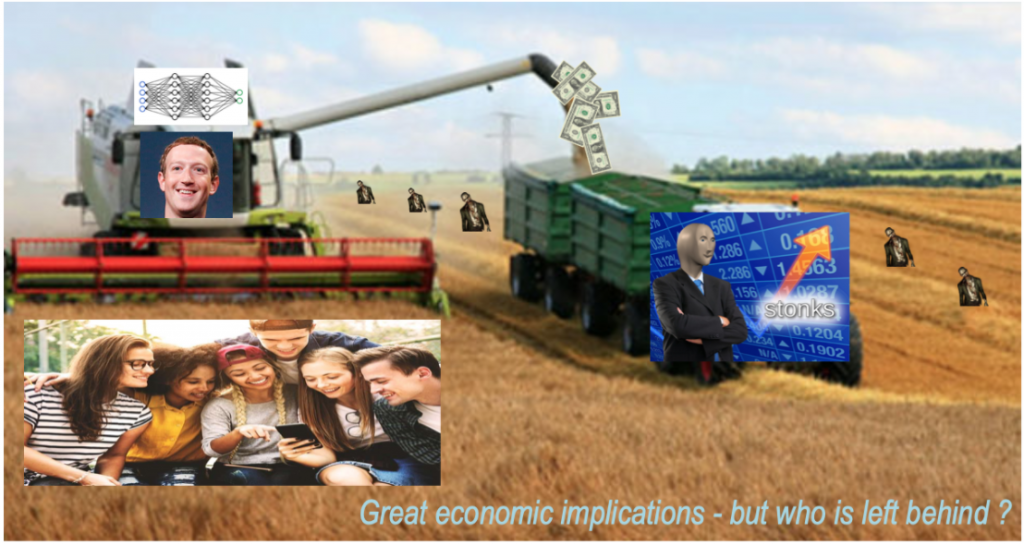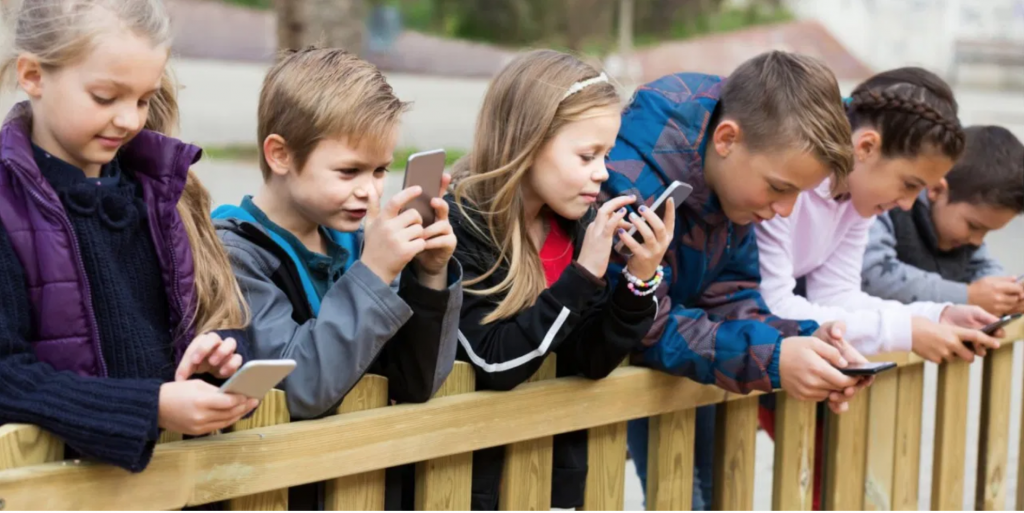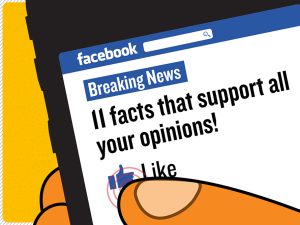Did social media go from utopia to dystopia?

How Social becomes Artificial, and how Media becomes the real threat to the future of human Intelligence.
Long ago, Karl Marx, a famous German social philosopher and the chief theorist of modern socialism had grievously remarked that, “Religion is opium of the people“. Nowadays, we do not really do Religion any more, but we sure do do Social Media and Entertainment, which turns out to have a narcotic effect on us that no religion could match.
We would like to present our view on the effect that social media has had and will have on our society. One might say, “ah, it is quite trivial, we talked about it so much”. But we see this threat as both real and fundamental, since it may have devastating effects on the human species.
The Age of Innocence: The Rise of Social Media
For social animals like humans, creating social networks is very natural and something that most would consider inherently positive. While the evolutionary explanation of this phenomenon might be complex, it’s obvious that we are somehow deeply incentivised to be a part of a social group, to the extent that the need for interaction is probably hardcoded into our genes. Connecting people results in the exchange of ideas and information, it provides us with data and feedback needed to validate our ideas of how the world functions, and find our place in it.
Instead of looking back at our ancestors and discovering how the idea of connecting people evolved and why it is beneficial, we would like to share our perspective on the social networks of today. The evolution from the real life social networks to digital ones that supplement, and at times substitute for face to face interaction.
The idea of a digital social network is at least as old as the Internet itself, which again shows our natural incentive to create social interactions wherever possible. Although services like AOL Instant Messenger or Windows Live Messenger and their eventual successor MySpace are usually recognized as the *quasi first* online social networks, tools such as Bulletin board systems (BBS) and the Internet Relay Chat (IRC) were already in use during the early 90s with the exact same intention : connecting people.
Although the functionality of these services has been expanded greatly over the decades, the social aspect is still the driving factor that attracts us to use these services, since clearly no one would use an off-line version of e.g. Instagram. However, while our natural drive to use social networks hasn’t changed much at all during this evolution, we will see how the initial objective of social network companies, namely to connect people, has changed in an unforeseen way.
The Golden Age: When Social Media Did Good

The rise of digital social networks went hand-in-hand with the development of the Internet and the process of globalization. The idea of a global village was emerging when Internet access became common in most households around the world. Social media platforms like MySpace, Friendster, and eventually Facebook were undoubtedly game changing not only from the perspective of staying in touch with old friends and making new ones, but also in the we would eventually organize ourselves. Most of us heard about the term “Facebook-Party”, which describes the creation of online groups to gather in public. Although those gatherings were initially observed as mainly used by teenagers to initiate large (often illegal) public parties, the World would soon realize how powerful this tool can be.
Not before too long, the day came when Internet access began to spread into less developed countries, which by the way was greatly accelerated by Facebook itself. Oppressed people, living under non-democratic regimes, were suddenly able to cry out globally about what is happening in their country. Not only were they heard, but they were also finally able to organize in a cautious way and – most importantly – at a scale that was previously unimaginable.
The very idea of gathering in large protest groups may sound natural for us, but in less democratic countries, declaring your opposition to an oppressive regime in such open way is a life-threatening enterprise. Therefore, it is important to acknowledge that social media gave those people voice to sound grievances and call attention to the ones responsible. Perhaps one of the best examples of this would be how social media helped initiate and accelerate the Arab Spring, but there probably many small revolutions in regions with oppressive governments. So we can conclude that by providing digital and private ways connect and exchange ideas, online social networks facilitated the spread of democracy, globally.
Although there are numerous additional social aspects, which have been positively affected by social media, we must also acknowledge that social networks have created large advertising markets for anyone willing to pay. The ability to push ads on platforms with millions active users is an excellent way to acquire customers at a previously impossible scale, both for small and large businesses. Given the enormous economic value that was subsequently generated, the platform providers became extremely profitable companies and large parts of the economy are now relying on using these platforms to facilitate customer acquisition.
The Descent: When Things Became Concerning
Can something that is inherently positive become dangerous?

The providers of social networking/media platforms slowly began to realize that they can make use of what has been previously thought to be “digital exhaust”, referring to user generated data like your last log-in, your log-in scheme or even higher level information like how much time you spent looking at certain profiles. Social network hosts discovered that this seemingly innocuous meta data may in fact be incredibly useful, given the enormous amounts of information they possess. In parallel to the commercialization of social networking platforms, powerful AI algorithms became viable due to advancements in AI software and underlying hardware technology. By this time, it was already well understood that these advanced AI systems needed to be trained with large data sets. It was also known that these systems would improve dramatically in relation to volume of input data. It was a perfect fit for the social media giants, but now we need one more ingredient for the perfect recipe; to make social media platforms even more profitable: The objective.
Although modern machine learning systems have limits when optimizing an objective, when fed enough data they are able to figure out almost magically effective solutions. What happens if we set the objective to be profit? Well, we don’t need to fully comprehend what kind of complex features the AI systems are approximating to understand that maximizing profits is almost identical to maximizing user screen time, since more user attention directly translates to more potential ad placements.
Now, what does it imply if hundreds of millions of users spend time on platforms whose content is optimized by sufficiently trained screen time maximizers? Will it effect the user?
The Dark Age: Beyond Connecting People

After a fascinating debut, there was a long period during which we enjoyed reconnecting with long-forgotten friends, distant families, or having online relationships. Overall, we felt like this new technology is making our horizons expand, our friendships grow. Meanwhile, we have not noticed the effect that these platforms began to have on us.
The objective to maximize the time we spend on social media gave rise to a new type of craft called Attention Engineering. These “engineers” have to implement the following procedure: acquire a human user, leverage built-in dopamine feedback loops to trigger primal emotion that promotes dependency. In the case of a really successful design, the user turns into an addicted media Zombie, who will go online endlessly with no real purpose or self-control. Once a user is properly Zombified, it will be easy to retain their attention for a long time, thereby facilitating extensive information collection, while quite obviously maximizing revenue.
We coin the phrase “addictive webs”, where platforms like Facebook, YouTube, and Netflix acquire us as users, alter our perception and change our mental effectiveness. Users are served content which merely reinforces their existing beliefs and omits the rest, thereby making us susceptible to biased, fake or incorrect information. Attention engineering strategies contribute to compromised attention, loss of productive work, loss of critical thinking, and loss of self-control.
This is why, slowly but surely, our Social network became quite Artificial and those Media platforms became Intelligence sucking webs, where a user is voluntarily trapped, consumed, manipulated, drained, and eventually undergoes mental and intellectual degradation. This is especially the case for children and young adults.
The Probable Future of Idiocracy

Idiocracy is a prophetic sci-fi movie made in 2006 about the world’s dystopian future. The movie tells the story of an average guy, who awakens from hibernation 500 years in the future to learn that he’s now the smartest man alive in a society of media-addicted morons.
Urban Dictionary defines Idiocracy as “A movie that was originally a comedy, but became a documentary.” It’s not a horror movie, but it is quite horrifying in its depiction of how social media destroys our ability to focus and think critically. We may not be devolving genetically, but behaviourally we’re well on our way.
I can still vaguely remember a time BSP (Before Smart Phones); the freedom to be unreachable and a time without phone anxiety. I must say it felt just right, but it was so long ago. Since then, social media puppeteers have hooked us on the devices, flooded us with an unmanageable amount of input, and milked us dry of our vitality, our ability to focus, our human interaction, and of course our free time.
Currently there is solid evidence that social media has had devastating effects on adults, but the extent to which these platforms have affected young users are still not known to the full extend. Our intuition tells us that if left unmanaged these effects will be far from amusing. And, if we fall back on the mantra “everyone is online today, this is progress”, the consequence may well be that we create a generation of anxious, unable to focus idiots.
Most of you are not yet parents, or perhaps some of you already have a child. In any case, you can imagine it is truly devastating to witness the effect these platforms have on innocent and unarmed users, namely the children. Kids today hardly had a chance to live in a world where the default time-spent is playing and running around outside with other kids, sweaty and so alive, as opposed to playing mostly with online friends, pale and nervous. A world where kids were loosing themselves in a book instead of being tied to a mind-numbing YouTube feed.
The battle against those attention puppeteers is very hard to navigate, let alone win. Setting the kids free to use a smart phone, we parents feel vaguely guilty and worried about the price they will pay for this online edition of a childhood. However, we just let them go on, because “well, everyone does it nowadays”, and because we have to time or energy for this battle, we REALLY need to check our messages first!
